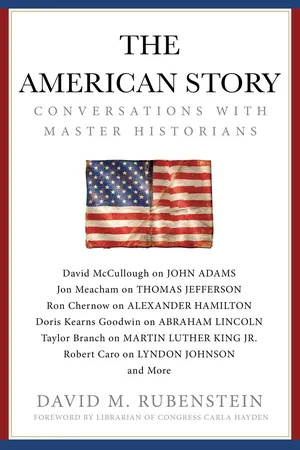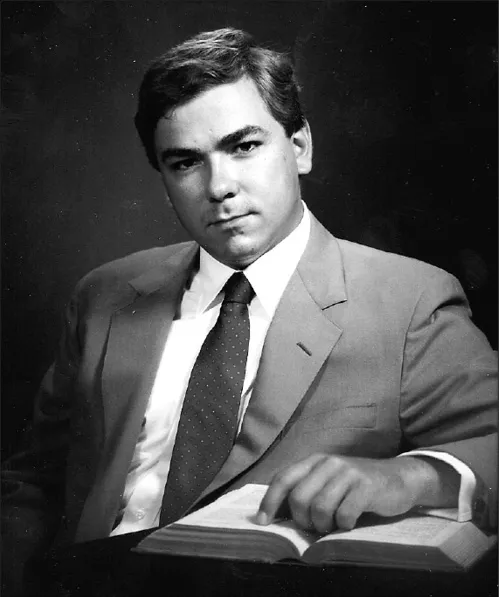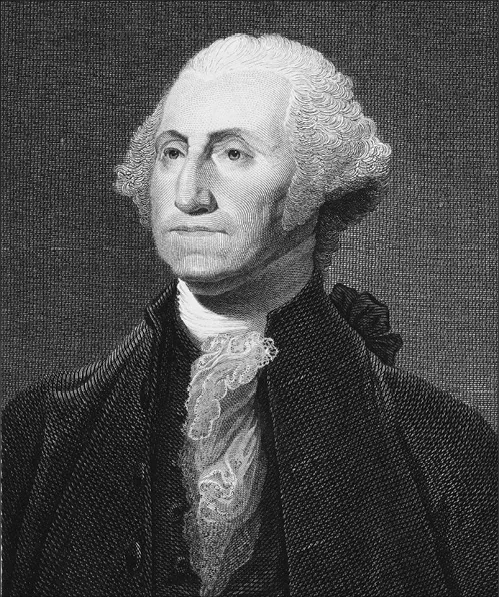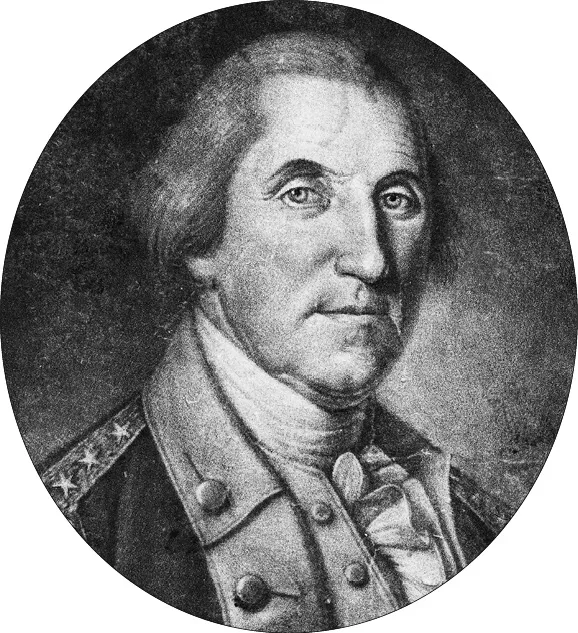
- 416 pages
- English
- ePUB (mobile friendly)
- Available on iOS & Android
eBook - ePub
About this book
Co-founder of The Carlyle Group and patriotic philanthropist David M. Rubenstein takes readers on a sweeping journey across the grand arc of the American story through revealing conversations with our greatest historians.
In these lively dialogues, the biggest names in American history explore the subjects they’ve come to so intimately know and understand.
— David McCullough on John Adams
— Jon Meacham on Thomas Jefferson
— Ron Chernow on Alexander Hamilton
— Walter Isaacson on Benjamin Franklin
— Doris Kearns Goodwin on Abraham Lincoln
— A. Scott Berg on Charles Lindbergh
— Taylor Branch on Martin Luther King
— Robert Caro on Lyndon B. Johnson
— Bob Woodward on Richard Nixon
—And many others, including a special conversation with Chief Justice John Roberts
Through his popular program The David Rubenstein Show, David Rubenstein has established himself as one of our most thoughtful interviewers. Now, in The American Story, David captures the brilliance of our most esteemed historians, as well as the souls of their subjects. The book features introductions by Rubenstein as well a foreword by Librarian of Congress Carla Hayden, the first woman and the first African American to lead our national library. Richly illustrated with archival images from the Library of Congress, the book is destined to become a classic for serious readers of American history.
Through these captivating exchanges, these bestselling and Pulitzer Prize–winning authors offer fresh insight on pivotal moments from the Founding Era to the late 20th century.
In these lively dialogues, the biggest names in American history explore the subjects they’ve come to so intimately know and understand.
— David McCullough on John Adams
— Jon Meacham on Thomas Jefferson
— Ron Chernow on Alexander Hamilton
— Walter Isaacson on Benjamin Franklin
— Doris Kearns Goodwin on Abraham Lincoln
— A. Scott Berg on Charles Lindbergh
— Taylor Branch on Martin Luther King
— Robert Caro on Lyndon B. Johnson
— Bob Woodward on Richard Nixon
—And many others, including a special conversation with Chief Justice John Roberts
Through his popular program The David Rubenstein Show, David Rubenstein has established himself as one of our most thoughtful interviewers. Now, in The American Story, David captures the brilliance of our most esteemed historians, as well as the souls of their subjects. The book features introductions by Rubenstein as well a foreword by Librarian of Congress Carla Hayden, the first woman and the first African American to lead our national library. Richly illustrated with archival images from the Library of Congress, the book is destined to become a classic for serious readers of American history.
Through these captivating exchanges, these bestselling and Pulitzer Prize–winning authors offer fresh insight on pivotal moments from the Founding Era to the late 20th century.
Tools to learn more effectively

Saving Books

Keyword Search

Annotating Text

Listen to it instead
Information
1 JACK D. WARREN JR. on George Washington


“Our national independence is Washington’s legacy.”
BOOK DISCUSSED:
The Presidency of George Washington (U. of Virginia Press, 2002)
We don’t lack for George Washington scholars. The United States has an abundance of them, and their books have together given a relatively full rendering of the Revolution’s indispensable man—the man of whom it was said at his funeral that he “was first in war, first in peace, and first in the hearts of his countrymen.”
Like many Americans, as a youth I was taken by my parents to Mount Vernon. That began my own lifelong admiration for our first president, the only Founding Father to free his slaves at his death.
When I took my own son, then about eight years old, to visit Mount Vernon, he saw a large twig on the ground and asked if that was a part of the cherry tree that Washington had cut down as a young boy. Although the cherry-tree story is a myth, I could not destroy the illusion for an eight-year-old. I replied that I could not tell a lie and that it indeed had been a part of the cherry tree.
I asked Jack Warren to do the interview on George Washington because Jack has an encyclopedic knowledge of our first president, having devoted much of his adult life to studying him. His book on Washington’s conduct as president is an excellent look at how Washington essentially invented the office and established traditions and practices still in use more than two hundred years later.
Jack has devoted his career to promoting the memory of Washington and the American Revolution. For a good number of years, Jack served as an editor for The Washington Papers, a project still ongoing under the auspices of the University of Virginia. He fought successfully to save the site of Washington’s childhood home. Today, Jack leads the American Revolution Institute, a public nonprofit created to ensure that all Americans understand and appreciate the achievements of the American Revolution. He is also the executive director of the Society of the Cincinnati. (The modern members of the society are descendants of Washington’s officers.)
Although there were no Rubensteins who served as officers in the Revolutionary War, a few years ago I was made an honorary member of the Delaware chapter of the society. Through the society, and through events at its headquarters (Anderson House in Washington, D.C.), I have interviewed Jack more than a few times. His affection and respect for Washington and his knowledge of Washington’s life are unmatched, as is apparent in the interview.
In our conversation, Jack Warren makes clear why George Washington was easily the first among equals of the Founding Fathers. On three occasions, he left the tranquility and comfort of Mount Vernon to help his fellow citizens, fulfilling a role that no one else in the colonies (and later the country) could have done as well, if at all.
First, he led the American troops in battle against the seemingly invincible British. (Few Americans had Washington’s military experience.) Second, he presided over the Constitutional Convention, an assemblage unlikely to have even occurred, much less succeeded, without his presence. Third, as the first U.S. president, he ensured the new American government would work, and set the precedents that have helped guide his forty-four successors so far.
As Jack recounts, Washington was able to achieve these three feats not because of an engaging, back-slapping, hail-fellow-well-met personality. Standoffish, if not regal, in bearing and demeanor, he was more than a bit distant from his colleagues and even his fellow Founding Fathers. He led not through a dynamic, engaging personality but through example. He set a high bar for himself and met or exceeded it. Others saw this and followed his lead.
But Washington’s greatest legacy was his willingness to give up power. Generals who led military victories typically became rulers for life if they could. Washington returned to Mount Vernon at the end of the Revolutionary War, content to resume the life of a gentleman farmer and plantation owner. He could readily have had a third term and presumably served as president until his death, but he chose the opposite course. He retired to his home and gave up all his government power.
Back at Mount Vernon, Washington lived only two and a half more years. He could have lived longer had he been less hospitable: after riding several hours through a rainstorm, he arrived home drenched and cold, but refused to change clothes and keep his dinner guests waiting. The result was a swollen epiglottis, difficulty in breathing, and a failed effort to address the problem by bloodletting (i.e., cutting veins to let the “bad blood” out of the body). That shortly produced shock, and ultimately death. Jack relates the unfortunate outcome in the interview.
Interestingly, Jack notes, Washington had two uncommon provisions in his will. First, he arranged for his slaves to be emancipated after his death (the only Founding Father to do so). Second, he asked not to be buried for two days. In those days, doctors left something to be desired, and they sometimes authorized patients to be put in coffins before death had actually occurred. Washington was, in fact, dead before being placed in his coffin.
MR. DAVID M. RUBENSTEIN (DR): Of all the Founding Fathers, the one who still commands the most admiration and respect is probably George Washington. Why is that?
MR. JACK D. WARREN JR. (JW): George Washington led the Revolution for our independence. Without him, our revolution would have failed. Our national independence is Washington’s legacy. We are sitting in this city in the greatest country in the history of the world, in the greatest republic since the fall of the Roman Republic, as a consequence of Washington’s actions.
DR: George Washington grew up in what’s now called Mount Vernon—named, ironically, after a British admiral. Washington’s older half brother was an officer in the British navy, is that right?
JW: Washington moved around as a child, but when he was a teenager, he spent a lot of time at Mount Vernon, which was the home of his half brother Lawrence Washington. Lawrence was an officer in the Virginia colonial militia and served as a volunteer officer under Admiral Edward Vernon in an attack on Cartagena in a brief naval war between Britain and Spain, oddly named the War of Jenkins’ Ear.
DR: So his brother named Mount Vernon.
JW: He did. He had admired Admiral Vernon. George Washington later inherited Mount Vernon, but he never changed the name, and so lived in a house named for a hero of the British Empire.
DR: George Washington wanted to be an officer in the British military at one point?
JW: Lawrence thought George might become an officer in the Royal Navy, but there is no evidence George ever warmed to the idea. When he was in his twenties, George Washington wanted to secure an appointment as an officer in the regular British army.
DR: And he was rejected?
JW: He played an important role as a Virginia militia officer in the French and Indian War and came to the notice of regular British army officers—including men he would later fight during the Revolutionary War. He realized then that the British army offered no real opportunities for a colonial and that his ambition was never going to be realized.
DR: Washington does do some fighting in the French and Indian War of 1754 to 1763 and gets a reputation. Then he’s elected to the Continental Congress—the governing assembly in Philadelphia, made up of delegates from the thirteen colonies—and serves as leader of the American forces during the Revolution. Why did they pick George Washington, who wasn’t that famous a military tactician or general? Why did the Continental Congress say, “We want you to lead the troops in the American Revolutionary War”?
JW: He was the best man available. He was a Virginian. The Revolution had begun in Massachusetts, and most of the early fighting was in New England. Congress realized it needed somebody from outside New England to lead the army. Although George Washington had never led more than a couple of hundred men, he was the most experienced military leader in Virginia, the largest of the colonies. Moreover, Washington had the bearing of a soldier. He stood out.
DR: Because he was six foot two?
JW: Yes, but much more than that. Because he commanded respect. In the weeks after the fighting at Lexington and Concord, Congress debated how to respond. George Washington said very little in those debates. He was never much of a public speaker. But he appeared each day in his Virginia regimental uniform, as if to say, “A war for the liberty of America has begun. We must fight, and I am prepared to do it.”
DR: People say that when they asked him, “Why don’t you be the leader of our troops in the Revolutionary War?” he said, “No, I don’t want to do it.” Finally he said okay, and it turned out he had already brought all of his uniforms up from Mount Vernon. Is that true?
JW: He was modest, which is one of the things people admired about him. In accepting the command, he said, “I beg it may be remembered by every gentleman in the room that I this day declare with the utmost sincerity, I do not think myself equal to the command I am honored with.”
But if I could be a fly on the wall, one of the scenes I would like to see is Washington packing his military uniform for the trip to Philadelphia. Surely Martha knew he was taking his uniform, and what this might mean.
After he had accepted command of the Continental Army, he wrote a letter to her, one of the only letters he wrote to her that survives. “You may believe me, my dear Patsy,” he began, “when I assure you, in the most solemn manner, that so far from seeking this appointment, I have used every endeavor in my power to avoid it, not only from my unwillingness to part with you and the family, but from a consciousness of its being a trust too great for my capacity.… But as it has been a kind of destiny, that has thrown me upon this service, I shall hope that my undertaking of it, is designed to answer some good purpose.”
It’s a charming letter, but the idea that he had tried to avoid the appointment is not true. He wanted it. He just didn’t imagine that the war would last for eight years, and that in those eight years he would see Mount Vernon only once, for a single night, when he was on his way to Yorktown.
DR: How old was he when he became the general of the American forces in the Revolutionary War?
JW: He was just forty-three.
DR: The same age as John Kennedy was elected president.
JW: We are used to thinking of Washington as a mature man—a man in his late fifties or sixties, as he was when the most familiar portraits were painted. But in 1775 he was a robust young man in the prime of his life. He was a great horseman, a fine dancer, and a gifted athlete.
DR: He was robust and athletic, but he had not been educated, right? No college, no high school, no grade school.

After leading American troops to victory in the Revolution, George Washington served as president of the Constitutional Convention in 1787 that oversaw the creation of the U.S. Constitution, establishing a federal system for the newly independent country.
JW: Washington had had as much education as a typical planter in his station. His formal education ended when he was about fourteen. Our thinking about his education is skewed, because some of the other leaders of the Revolution benefited from a fine formal education. Thomas Jefferson graduated from the College of William and Mary, James Madison from Princeton, and Alexander Hamilton from Columbia.
But some of the greatest minds of that century, and certainly the greatest Americans of that generation, were more simply educated. Franklin had little formal education. Patrick Henry was the most eloquent American of the eighteenth century, if not of all time, and he had no more formal education than Washington.
DR: So Washington took the job and said, “I’ll do it, but I don’t want to be paid. Just cover my expenses.” Is that what almost broke the Continental Congress? Because his expenses were pretty significant.
JW: Washington’s expenses were significant. Some revisionist historians try to poke holes in Washington’s reputation by pointing out that this was really a good deal. But keep in mind that Washington’s expenses as commander in chief included all the expenses of his military staff. He also had to pay the costs of espionage. There was no NSA, CIA, or military intelligence apparatus, and no congressional appropriation for intelligence. Washington managed much of that himself, and the costs show up in his expense accounts.
DR: That’s a fair point. How many troops did he actually command in the Revolutionary War? Was it more than twenty thousand at any point?
JW: At its peak, when the army was gathered around New York City in the summer of 1776, Washington had about thirty-five thousand men to defend America from the greatest military expedition any European power had ever sent overseas. Those thirty-five thousand included t...
Table of contents
- Cover
- Title Page
- Dedication
- Foreword
- Introduction
- Chapter 1: Jack D. Warren Jr. on George Washington
- Chapter 2: David McCullough on John Adams
- Chapter 3: Jon Meacham on Thomas Jefferson
- Chapter 4: Ron Chernow on Alexander Hamilton
- Chapter 5: Walter Isaacson on Benjamin Franklin
- Chapter 6: Cokie Roberts on Founding Mothers
- Chapter 7: Doris Kearns Goodwin on Abraham Lincoln
- Chapter 8: A. Scott Berg on Charles Lindbergh
- Chapter 9: Jay Winik on Franklin Delano Roosevelt
- Chapter 10: Jean Edward Smith on Dwight D. Eisenhower
- Chapter 11: Richard Reeves on John F. Kennedy
- Chapter 12: Taylor Branch on Martin Luther King Jr. and the Civil Rights Movement
- Chapter 13: Robert A. Caro on Lyndon B. Johnson
- Chapter 14: Bob Woodward on Richard M. Nixon and Executive Power
- Chapter 15: H. W. Brands on Ronald Reagan
- Chapter 16: Chief Justice John G. Roberts Jr. on the U.S. Supreme Court
- Acknowledgments
- About the Contributors
- About the Author
- Index
- Image Credits
- Copyright
Frequently asked questions
Yes, you can cancel anytime from the Subscription tab in your account settings on the Perlego website. Your subscription will stay active until the end of your current billing period. Learn how to cancel your subscription
No, books cannot be downloaded as external files, such as PDFs, for use outside of Perlego. However, you can download books within the Perlego app for offline reading on mobile or tablet. Learn how to download books offline
Perlego offers two plans: Essential and Complete
- Essential is ideal for learners and professionals who enjoy exploring a wide range of subjects. Access the Essential Library with 800,000+ trusted titles and best-sellers across business, personal growth, and the humanities. Includes unlimited reading time and Standard Read Aloud voice.
- Complete: Perfect for advanced learners and researchers needing full, unrestricted access. Unlock 1.4M+ books across hundreds of subjects, including academic and specialized titles. The Complete Plan also includes advanced features like Premium Read Aloud and Research Assistant.
We are an online textbook subscription service, where you can get access to an entire online library for less than the price of a single book per month. With over 1 million books across 990+ topics, we’ve got you covered! Learn about our mission
Look out for the read-aloud symbol on your next book to see if you can listen to it. The read-aloud tool reads text aloud for you, highlighting the text as it is being read. You can pause it, speed it up and slow it down. Learn more about Read Aloud
Yes! You can use the Perlego app on both iOS and Android devices to read anytime, anywhere — even offline. Perfect for commutes or when you’re on the go.
Please note we cannot support devices running on iOS 13 and Android 7 or earlier. Learn more about using the app
Please note we cannot support devices running on iOS 13 and Android 7 or earlier. Learn more about using the app
Yes, you can access The American Story by David M. Rubenstein in PDF and/or ePUB format, as well as other popular books in History & North American History. We have over one million books available in our catalogue for you to explore.